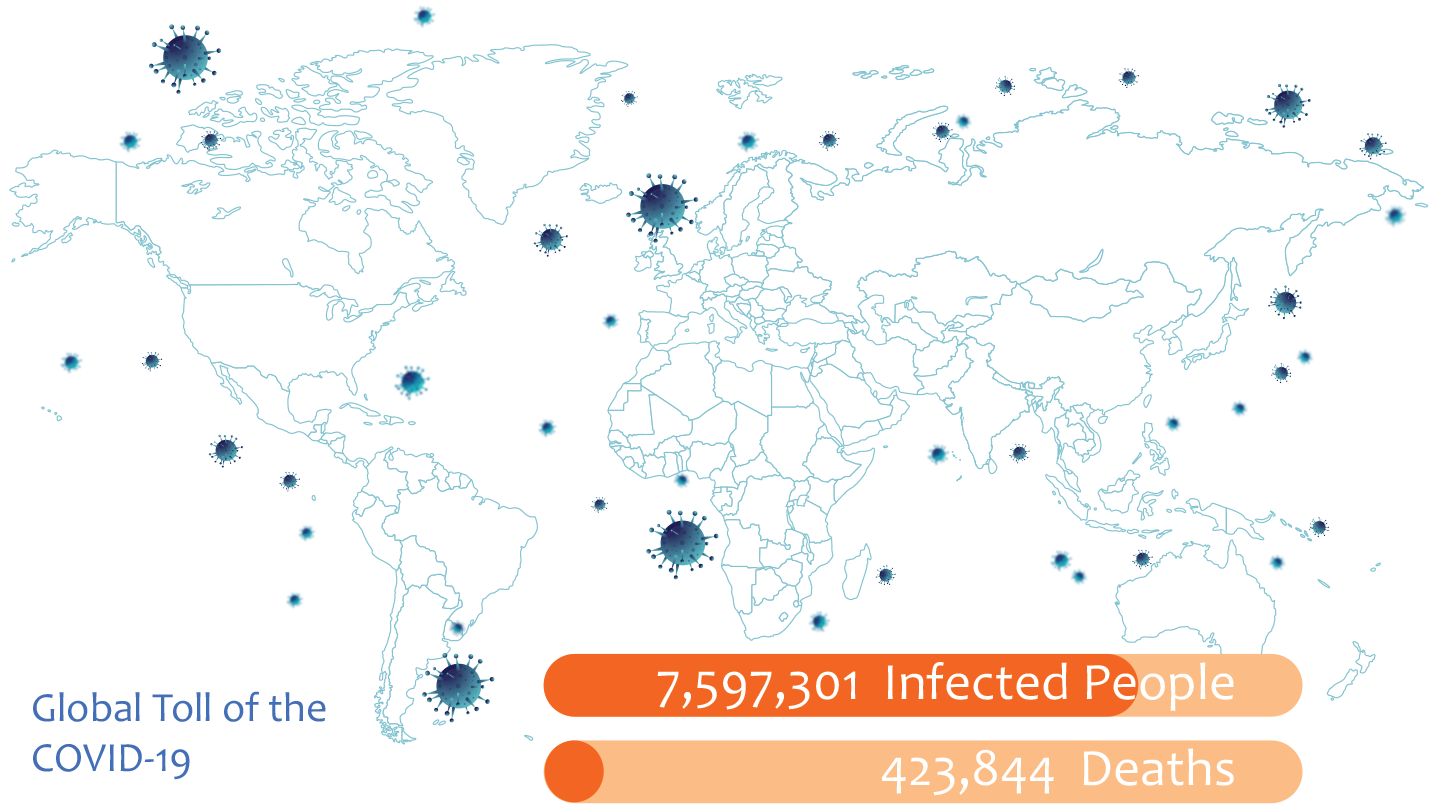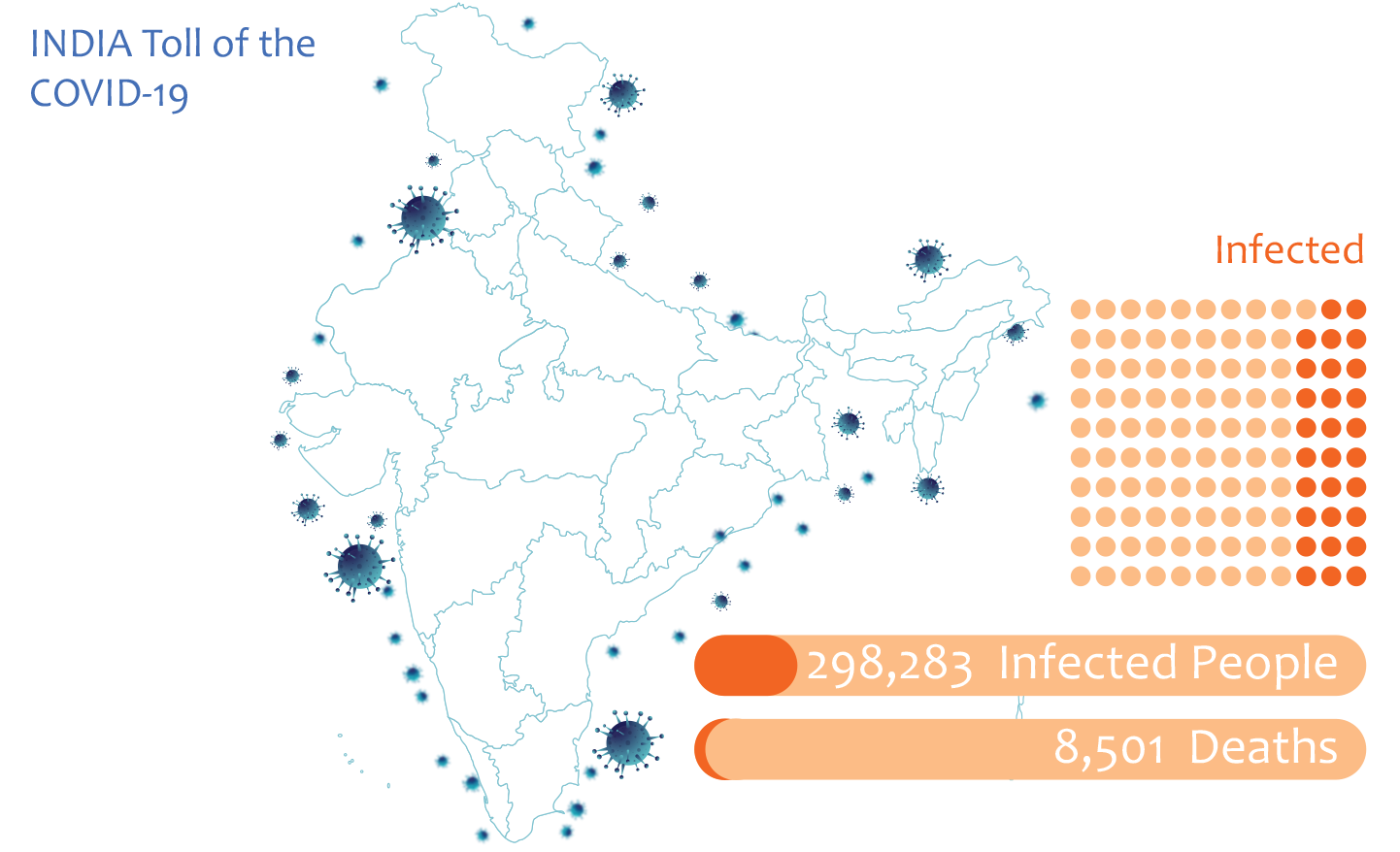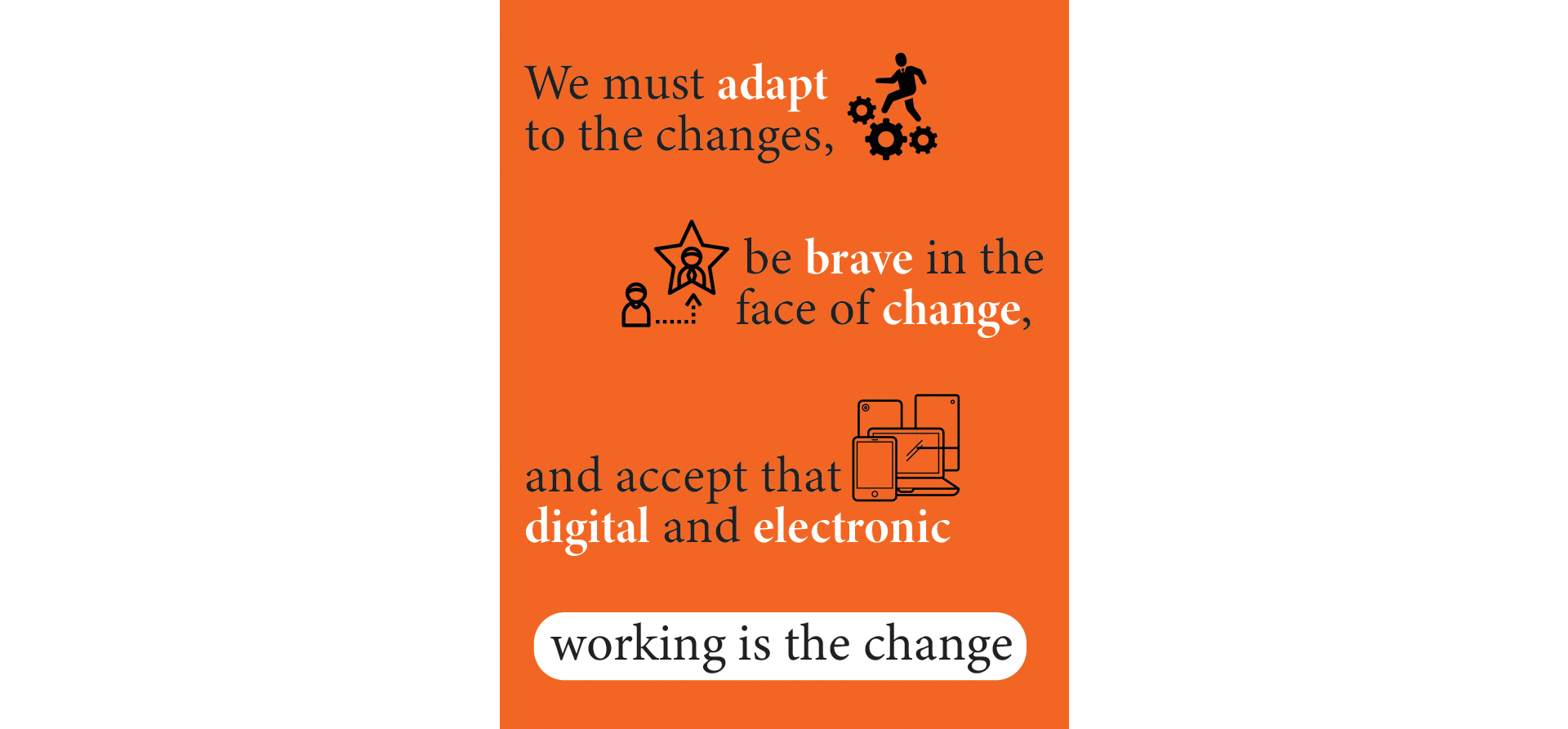
Dear Friends and Colleagues, A message from the Quarter Deck has seldom started on such a dismal and despairing note, but this time, there is, indeed, no other way.
- The global toll of the COVID-19 pandemic at the time of going to press was :
- Infected people: 7,597,301
- Deaths: 423,844

- Whereas in India :
- Infected persons: 298,283
- Deaths: 8,501

India chose to be cautious, so as not to endanger human life and thus, went for a total lockdown. The nation went into lockdown on 25th March 2020. The government tentatively declared that it would remain in place until 14th April 2020. However, the number of cases kept rising and the death toll also kept rising, so the lockdown was extended until 3rd May. It was further extended until 17th May and then to 31st May.
When we studied the situation closely, it became clear that starting back after the lockdown was not going to be a question of just opening our doors and resuming work. The virus is still around, so living with it is going to be an ongoing part of our lives. We need to adopt a whole new lifestyle and a whole new way of working.
Social distancing, video calls, webinars, digital and paperless processes, e-commerce, emails, e-learning, digital workplaces: this is our new normal. Actually, after the ABC of life, we seem to be in the D and E of our life’s journey!
So, if A is for ADAPT, B is to be BRAVE and C is for CHANGE, the D is for DIGITAL and E is for ELECTRONIC.

To put things in perspective, just before this lockdown in India started, the on-again off-again US–China trade and tariff wars were ongoing. The trade volumes, on the main trade routes, were beginning to see a dip. This was aggravated by the lockdowns in Wuhan and then the rest of China. Simultaneously, the shipping world had shifted to the new standards for fuel to reduce SOX emissions (0.50% m/m). The new fuel costs $200 per tonne more than conventional fuel. Moreover, several hundred ships were awaiting to be fitted with scrubbers at various shipyards. And then the crude oil price wars broke out, with crude oil prices falling below the $20 per barrel mark, which reduced the differential between conventional fuel and SOX-compliant fuel. This also created a huge market for VLCCs and other crude carriers, which are used as floating storage facilities for the cheap crude oil. And to add to this volatile cocktail of events, these last few months have seen hundreds of blank sailings, and at some ports, established services have changed or reduced their frequency from weekly to fortnightly.
This has, obviously, resulted in some ships being laid up, some ships steaming slowly and some ships even choosing to bypass the Suez Canal by taking the Cape of Good Hope route.
Against this backdrop, the global pandemic has shut down city after city and country after country. Many businesses, especially in retail, including several major global brands, have gone insolvent or into administration, or even filed for Chapter 11 bankruptcy. Needless to say, this will impact manufacturing and export firms globally, as these are the suppliers for the retail outlets.
With the shutdown, various domestic industries and businesses have been temporarily shut, thus leading to temporary unemployment and a massive migration of labour from the cities to the hinterland. Several renowned global economists, consultancy and advisory firms, and educational institutions have done studies and reports that analyse the economic turmoil and also the likelihood of an imminent recession. They suggest that the recovery may be V-shaped or U-shaped or W-shaped or L-shaped. Whatever shape it is, the next 1 to 2 years are expected to be grim. Most governments around the world have implemented stimulus packages to keep their citizens and their economies afloat.
Shipping ports and logistics are an essential part of the economy for any country, just as much as food, healthcare, electricity, clean water, etc. This is exactly what we at the J M BAXI GROUP of companies do for a living. This issue of Tidings focuses solely on the impact that COVID-19 is having on our business and the response, the resilience and the relevance of our group of companies and our people.
We are grateful to our clients and principals for having given to us this opportunity of being of service to them during these unprecedented times. Our shipping services division and companies have handled ships, undertaken crew changes, helped to bring Indian seafarers home, delivered coastal cargoes especially grain from one coast to another, and assisted in ensuring that our working environments are safe for the officers and crews of ships as well as port staff.
Our logistics division and companies have ensured that critical project cargo and packages are being delivered. We have worked hard to ensure that fertiliser movements to farmers are uninterrupted for the coming sowing season and continued to transport many important agricultural products, such as sugar, wheat and rice. Our various terminals have continued to handle ships and keep trade flowing, despite shortages of transport, labour and storage areas. Our technology and digital companies have continually endeavoured to enable remote working and online processes, especially since it has not been possible for the various stakeholders of the logistics world to be physically present in their workplaces. Finally, one of our companies has successfully introduced new products, such as thermal cameras, to enhance safety and security.
This issue of Tidings is an update from the ground for our principals, clients, customers and colleagues. Regular readers of this column know that one of the major guiding principles of J M BAXI GROUP has been to work closely with our clients and principals and to understand their needs.
This global pandemic and the resultant lockdown have actually made us closer to our clients and principals. It reminds one of the saying: “Distance makes the heart grow fonder”. This period is, actually, seeing the birth of a new normal.
This period is defining the additional roles that we will need to undertake for our clients and principals. There will be new and enhanced expectations, which we must respond to. There will be enhanced roles and responsibilities, for each of us. There will be new challenges and opportunities, for each of us.
It would be foolhardy, if not downright foolish, for us not to recognise the scale and scope of the challenges ahead of us. It is no small matter that global GDP is expected to shrink, for the coming year and beyond. Both demand and supply have been gravely disrupted. Liquidity will be an ongoing challenge and coping with costs, in these times of low productivity, will be a massive challenge.
But, that is for another time.
Before I conclude, I would like to thank each and every one of my colleagues for acting as frontline warriors on behalf of all our clients and principals, and also for all the regulatory authorities and government organisations.
Krishna B. Kotak
Chairman - J M BAXI GROUP